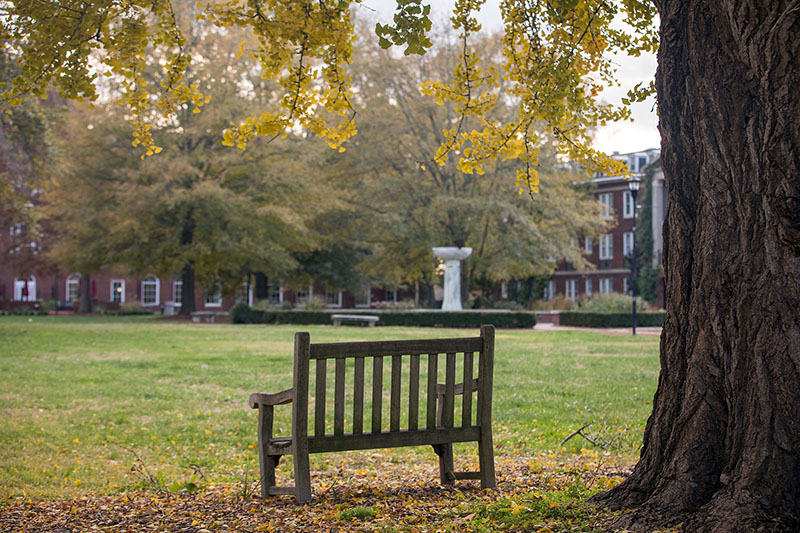Meredith Holds Suicide Prevention Awareness Trainings
- By Gaye Hill
- Published

Meredith’s Counseling Center held multiple suicide prevention awareness training sessions in September, which is Suicide Prevention Awareness Month. More than 80 faculty, staff, and students participated this year, a significant increase over previous years.
Beth Meier, director of the counseling center, said most suicide prevention trainings are fairly simple. The technique covered in Meredith’s sessions was QPR, which stands for Question, Persuade, and Refer. Much like CPR or the Heimlich maneuver, QPR is designed to empower lay people to intervene in emergency situations.
Meier said friends and family often become aware of an individual’s distress by reading comments they have made on social media. Other potential signs include giving away possessions, making a plan for pets, walking around in a fog, displaying general sadness, and not practicing good personal hygiene.
If potential suicidal behaviors are observed, QPR provides a framework to intervene.
Questioning is the first step. Both direct and indirect questions are appropriate, such as “Are you thinking about suicide? Have you been unhappy lately?”
The next step is Persuasion. It’s best to plan a time and place to talk with them. Listen to them without rushing or interrupting. The goal is to get them to accept help.
The last step is to Refer them to an appropriate resource for help. Ideally, accompany them to a healthcare professional, or help them make arrangements and commit to following through.
“The hardest part for most people is talking about suicide – even just saying the word,” said Meier. “A common myth is that if you ask someone if they are thinking about suicide, it will plant a seed and make it more likely to occur. In fact, research shows that talking about it really helps. Suicide is preventable.”
At Meredith, Counseling Center staff are on call 24/7 in the fall and spring semesters. Contact the counselor on call by calling Campus Police at (919) 760-8888 or the Critical Response Team at (919) 612-6350. To schedule an appointment with a counselor, email counselingcenter@meredith.edu or call (919) 760-8427.
The Counseling Center also has a Crisis Hour Monday through Friday at 1 p.m. and offers short-term counseling at no cost to Meredith students.
Note: The Counseling Center plans to offer additional QPR Trainings via Zoom in January 2022.
News Director
316 Johnson Hall
(919) 760-8087
Fax: (919) 760-8330
PRINCETON REVIEW
U.S. NEWS
NICHE
3800 Hillsborough Street Raleigh, NC 27607-5298 | (919) 760-8600 Fax: (919) 760-8330 | © 2024 All Rights Reserved.